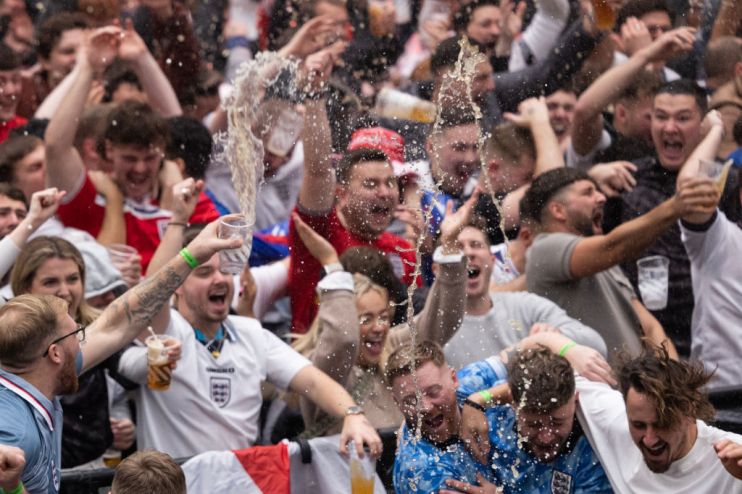Sport has significant soft power and we shouldn’t have caved in over armbands

On the eve of the England Men’s World Cup matches, long-suffering fans of the Three Lions are focused on selection dilemmas, pre-tournament drinking scandals or tactical machinations. At this edition of the biggest platform in sport, the focus is on a debate about how England should take a moral stance against homophobia and human rights more broadly. It’s a good sign of the times that we’re even having this conversation. But the last-minute decision not to wear the One Love armband, in support of LGBT people marginalised in Qatar, has caused understandable anger.
It is worth saying, at the outset, that it is promising the FA, along with the federations including Wales, Denmark, Germany, and the Netherlands, take a united stance on discrimination in the first place. Sport is not immune from the conversation about institutions and purpose. Sport has a long tradition of being inextricably connected to significant social and political developments.
Over the past few years, we’ve seen a dramatic increase in the expectations of fans, the bravery of sponsors and, notably, the athletes’ activism on the role of sport in society. I’ve worked closely with a range of bodies in sport on purpose. Institutions like the FA recognised that this development should be embraced rather than pushed away for fear of “getting it wrong”. Ten years ago, it’s unlikely we would have been having this conversation.
But with beliefs and values, you need follow through. The FA should have taken the risk of having players booked. Sometimes taking a stand means bearing the risks. Yes, there was a possibility that England would face disruption on the field, but sometimes (in fact, often) activism requires some sacrifice. Yesterday we saw the Iranian players stay silent during their team’s national anthem, presumably in protest against the regime in Tehran, an act which will potentially put them at far greater risk than a yellow card.
If the football federations involved had decided to wield their collective power and threatened to boycott their games FIFA would have likely yielded. However, there’s a broader lesson in this. Organisations would be wise to wargame what their efforts to take principle stances would mean in practice across a range of scenarios, factoring the real risk of not following through and being accused of caring about the issues only to the extent there are no costs.
All is not lost. There are other creative ways for England to spotlight these issues. The coaching staff should consider wearing the OneLove armband as Alex Scott did in the pre-match broadcast. England players will also individually have opportunities to drive their message in press interviews (where they should be given a license to be bolder). Collectively, the players have formidable social media clout which they can use to advance their message. FIFA may have blocked a tactic, but that need not block the message.
The real focus after Qatar must turn to FIFA. The corporate sponsors, who have had to turbocharge their diversity, equity and inclusion strategies in recent years after the murder of George Floyd, need to collectively use their clout to drive cultural change at the organisation. There are good people at FIFA but it’s clear that the leadership and culture is significantly behind where many of their fans, federations and sponsors are. This tension can’t persist.
This World Cup has helped to normalise the idea that athletes and the organisations representing them can work together to push for meaningful change beyond tokenism. The dispute over armbands has upset many, but player-led activism in the beautiful game is here to stay – and that’s a good thing.